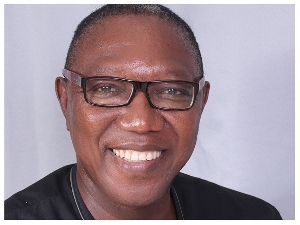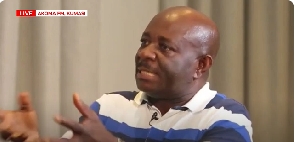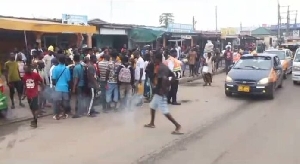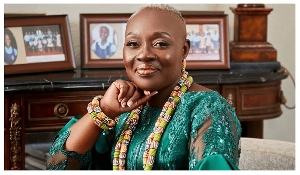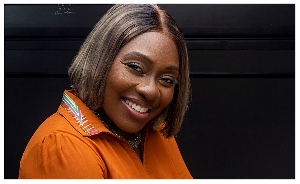Blakk Rasta,Akwesi Sarpong should be praised: 'Wee' could help Ghana economically
The country is Ghana and the plant is cannabis or "Wee" or "ganja," the terms preferred by Ghanaians. Marijuana grown in Ghana is of good quality, plentiful and relatively inexpensive. Such a plant does exist and an African country is growing it in good measure. Yet some world leaders aren’t cheering. Worse, the U.S administration is fighting a war against the plant and the poor African country that grows it.
What if a poor African country could grow a plant that would fetch healthy prices in the U.S? What if the plant could be grown on small farms in this poor African country to put cash into the hands of its poorest and most powerless people? What if such a plant could reduce the poor African country's dependence on the U.S. for aid?
Of course, the U.S. would cheer at such a plant and the country that grows it. And governments would be especially glad, since improving living standards in Africa is one of the key global objectives.
That's right; I’m told good 'pot' sells for $20 an ounce in Ghana. Here is the highest stage of capitalism – the free market – in action.
Ghana is one of the most peaceful countries in sub-Saharan Africa. The country rarely sees any violence (a benefit of pot-smoking?), has a democratically elected government and boasts of one of the most free societies in Africa.
'Pot' has been grown and smoked in the country for decades, drawing little comment. In Accra, the coastal capital of Ghana, people smoke discretely because the sale and possession of pot is technically illegal. But 'pot' is easy to purchase, arrests are rare, and smoking is popular, especially among American and European aid workers in the country.
For 'pot' smokers, Accra is an African paradise.
I am no expert in the world's drug affairs but I have never seen any signs of 'pot' ripping apart the fabric of Ghanaian life. There are no drug lords in Accra, no gun-toting bodyguards or 'pot' addicts strewn across the city's derelict roads.
Just the opposite is occurring, actually. 'Pot' is giving people starved for economic opportunities a chance to participate in the global economy.
Ghana is one of the losers in the world's experiment with widening trade. Goods flood into Ghana from China, Brazil, Mexico, even the U.S. Butter is imported from France, pasta and canned tomatoes from Italy, rolled oats from Germany and rice from the U.S.
Because the cost of producing and shipping these foods is subsidized by European, U.S. and Canadian governments, their cost in Ghana is sometimes less than it is in the country of origin. And even if it isn't, these imports ruin the lives of African food producers. American rice, imported into Ghana, sells for substantially less than rice grown in Ghana.
The burden of food imports would be less crushing if Ghana exported an equal amount of goods, but the country doesn't. It hardly exports anything. The country's two leading exports are cocoa beans and gold. These exports are the foundation of Ghana's economy – today and 100 years ago.
Ghana has low farm costs, making it an attractive place (in theory) to grow fruits and vegetables. But because of deplorable "feeder" roads to Ghana's cities and ports, roughly one-third to one-half of the country's crop of delicious pineapples rots before reaching market. Nearly as many of Ghana's plentiful bananas suffer the same fate.
Marijuana has a longer shelf life. For poor Ghana, it offers a lifeline to a more diverse and durable economic future.
To achieve this does not require a revolution in world drug laws either. European countries have eased their restrictions on marijuana, creating a chance for African growers to tap the huge market in cities such as Amsterdam, Stockholm and Copenhagen. After all, West Africa is a short hop by sea or plane to Western Europe, giving Africans an edge over producers elsewhere in the world.
Simply, then, by sticking to the gray area of the world's fuzzy 'pot' laws, Ghana could reap substantial benefits. Instead, the U.S. insists that Ghana buy American rice and yet refuses to allow its citizens to purchase Ghana's marijuana. Whatever the arrangement is, it is not free trade.
To add to the injury, the U.S administration wants to fuel a drug war in Ghana, where 'pot' exporters are so sophisticated and nefarious that their preferred method of transporting weed is to hide it in shipments of yams and others bound for Europe.
Blakk Rasta advocated for the legalization of it and now Mr. Akrasi Sarpong, the Executive Secretary of the Narcotics Control Board (NACOB) is also calling for debate about its legalization.
Whatever it is,the legalization is the right way for Ghana.
Ibrahim Hardi 0208235615
Email; bigkolaaya@yahoo.com
Message 18 of 239

